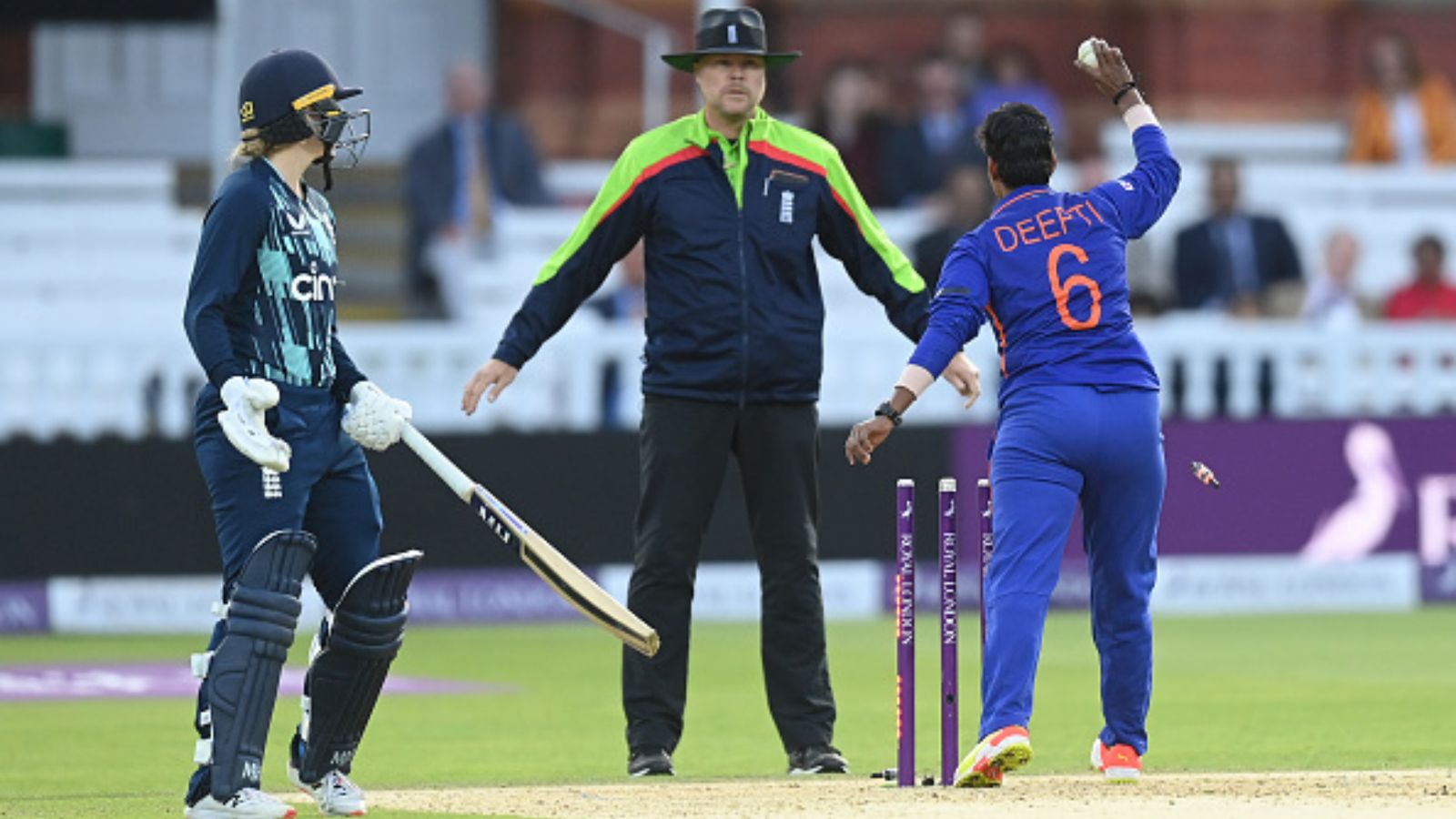Indian all-rounder Deepti Sharma was in the centre of a storm in the final ODI between England and India after she ran out Charlie Dean in the non-striker's end. Although the wicket was perfectly legal, it still divided opinions, some backing the call, and others, especially the English cricketers like Stuart Broad and James Anderson, expressed their annoyance.
The incident, which took place in the 44th over of the match, saw Sharma remove the bails off the wicket when Dean was backing up. Sharma stopped in the middle of her bowling action to run out the batter on 47 runs, with the target just 17 runs away. The dismissal is perfectly legal according to the laws of the game.
Here are some of the reactions:
However, many came in support of the dismissal with former India opener Virender Sehwag calling the English players 'poor losers'
He also congratulated Jhulan Goswami:
Leading India off-spinner Ravichandran Ashwin, who has often objected to this kind of run-outs being termed 'Mankading' (named after former India player Vinoo Mankad), also backed the Indian team.
Sent into bat, India were all out for a miserly 169, with it seemingly looking like a bitter-sweet end to Jhulan's career. But the Indians managed to eke out a win as Dean was adjudged run out for backing up. England was reeling at 65 for seven and then 103 for eight before Dean worked hard to bring her team back into the match.
While it has always been a legal mode of dismissal, recently the ICC, while modifying the playing conditions, moved this kind of dismissal from 'unfair play' to 'run out'.
The MCC Law 41.16.1 states: "If the non-striker is out of his/her ground at any time from the moment the ball comes into play until the instant when the bowler would normally have been expected to release the ball, the non-striker is liable to be run out.
"In these circumstances, the non-striker will be out run out if he/she is out of his/her ground when his/her wicket is put down by the bowler throwing the ball at the stumps or by the bowler's hand holding the ball, whether or not the ball is subsequently delivered."


